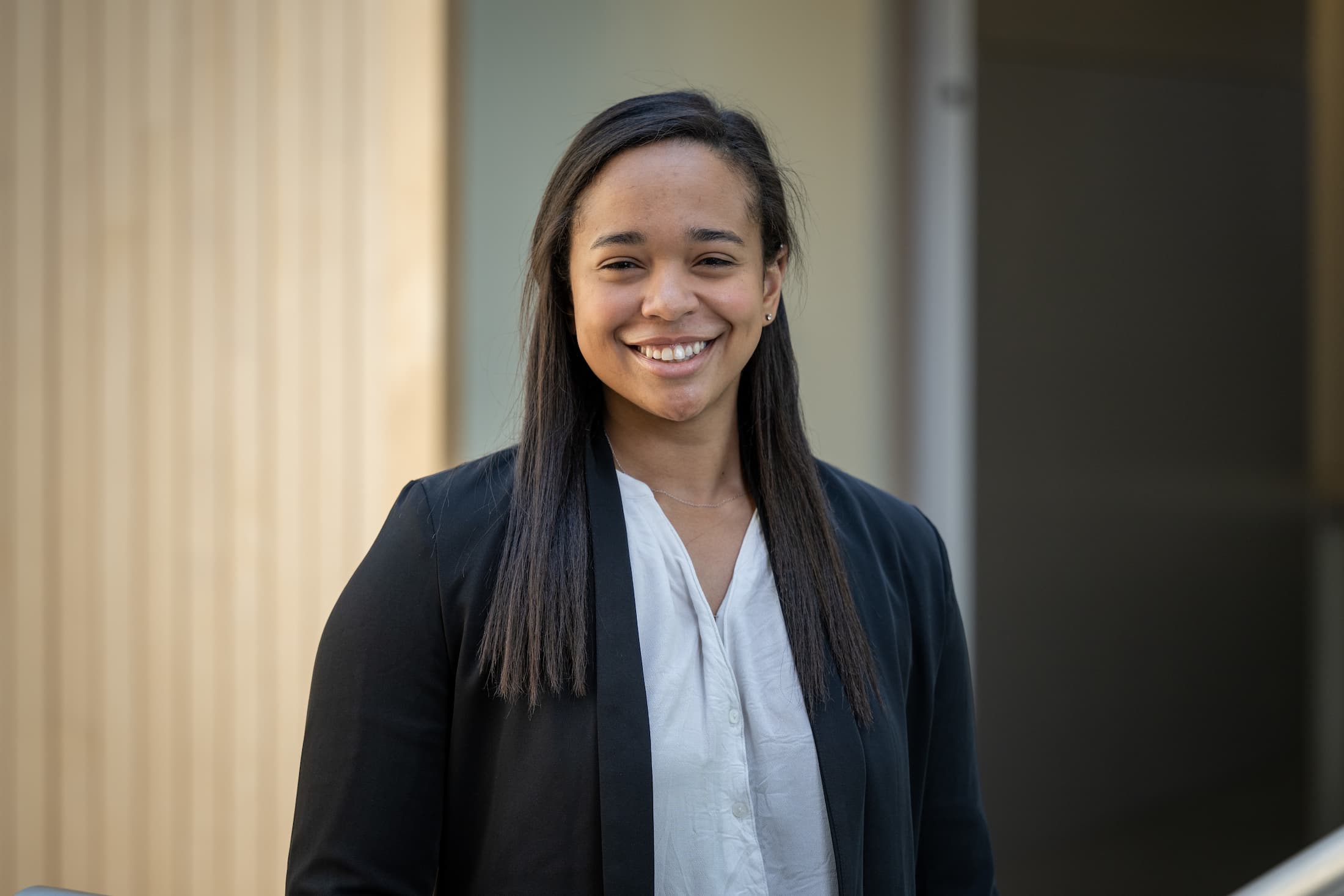
Londrea Garrett awarded prestigious Hoffman Postdoctoral Fellowship
The recent NERS PhD graduate to continue nuclear safeguards research at Lawrence Berkeley National Laboratory.

The recent NERS PhD graduate to continue nuclear safeguards research at Lawrence Berkeley National Laboratory.
Dr. Londrea “Lonnie” Garrett, who earned her PhD from the University of Michigan’s Department of Nuclear Engineering and Radiological Sciences in March 2025, has been named a Hoffman Postdoctoral Fellow at Lawrence Berkeley National Laboratory (LBNL). The highly competitive fellowship connects early-career scientists with national lab researchers advancing technologies that support U.S. Department of Energy (DOE) and National Nuclear Security Administration (NNSA) missions.
Garrett’s doctoral work focused on developing laser spectroscopy instrumentation designed for challenging nuclear environments, such as reactors and enrichment facilities. These tools aim to support efficient facility inspections for nuclear safeguards and materials accountancy. She said the goals of the Hoffman Fellowship closely align with her research and career aspirations.
“The fellowship encourages collaboration across the national lab system, so I’m hoping to build or strengthen relationships with colleagues working on similar problems,” Garrett said. “Personally, it feels like a vote of confidence from those already working prominently in safeguards that they believe in my ability as a researcher.”
While fellows are not required to submit a formal proposal during the application process, all research must contribute to advancing safeguards technologies and practices. Garrett said potential areas of focus include diagnostics for molten salt reactors and studying the chemistry of high-Z elements at LBNL’s Advanced Light Source synchrotron.
“LBNL has a rich history of advancing laser technologies and performing cutting-edge spectroscopy studies,” she said. “I’m excited to collaborate again with the Laser Technologies group and explore opportunities to use facilities like BELLA and the synchrotron.”
Garrett credited her time at NERS—especially her advisor, Professor Igor Jovanovic—for preparing her to take this next step. “Professor Jovanovic really pushed me to do the best research possible and develop the attention to detail necessary to excel in research,” she said. “I’m also grateful for my experience working within the Consortium for Monitoring, Technology, and Verification, which helped broaden my understanding of the many technologies being investigated for safeguards.”
Garrett hopes the fellowship will help her continue contributing to nuclear security. “Whether I stay within the DOE laboratory system or return to academia, I want to be at the forefront of safeguards research and help improve the ability to take the measurements we need to ensure nuclear security,” she said.